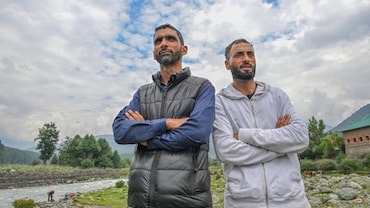- HOME
- /
- True Stories
- /
- Good News
- /
Children Turn Farmers: How A Social-Impact Leader Is Helping Youngsters Grow Green Fingers
Hafiz Khan’s novel environment-friendly initiative has allowed more than 2,000 children to nurture plants in their homes
 (Clockwise from left:) Durga Maithreyi with her plants, Charvi Trivedi proudly shows off her produce and Aarush and Aamuktha Adusumalli with plant saplings (Photos coutesy Ezone India)
(Clockwise from left:) Durga Maithreyi with her plants, Charvi Trivedi proudly shows off her produce and Aarush and Aamuktha Adusumalli with plant saplings (Photos coutesy Ezone India)
In a welcome development, children across the country have taken to growing greens in their homes in the pandemic season.
Over 2,000 children in India have participated in a microgreens project run together by Ezone India, a Chennai-based company promoting environmental awareness, and communiTREE, a CSR initiative run by Hafiz Khan, a social-impact leader who has committed himself to creating “man-made forests” in various regions of Chennai and Bengaluru. “From 2018, we have planted nearly 5 lakh trees in the two cities. We procured the seeds from institutions, universities and individuals. We also used to request them to plant the seeds wherever they could,” explains Khan.
In the pandemic period, Khan is now focusing his efforts to teach children how to grow trees, even in the confines of their homes. With an aim to provide holistic education that goes beyond school lessons and book-learning, sessions are conducted over WhatsApp twice a day for up to 120 children, on how to grow common plants and herbs, such as fenugreek and mint, at home. “The idea is to help them grow plants from seeds that are easily available in kitchens,” says Khan. The rigorous training course lasts for 15 days, and the daily schedule is planned in such a way that the children learn to grow more than one type of plant. The children also share pictures of the plants on WhatsApp, much to the delight of Khan and his team. “What’s really heartening to note is that parents are taking pride in their children’s efforts—some of them have taken to planting trees themselves. We also make it a point to send certificates to the children and their families for participating in the course,” says Khan.
The DIY lessons have clearly been a hit among youngsters, giving rise to a generation that is learning to be mindful about the environment, nutrition and sustainable food production. The future, for these children, looks bright and green.






